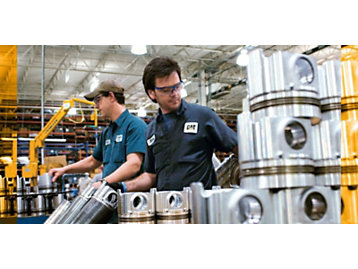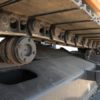CATERPILLAR SHREWSBURY SUPPORTS AUTONOMOUS REMANUFACTURING DISASSEMBLY RESEARCH
Cat® Reman returns products at the end of their lives (called ‘cores’) to same-as-new condition. Remanufacturing helps Caterpillar reduce material costs and helps customers reduce their owning and operating costs. Here’s another potential beneficiary of remanufacturing you might not have thought about before: the United Kingdom’s economy.
According to The Engineer magazine, the value of remanufacturing to the UK economy is already £2.4 billion. An increased focus on remanufacturing in the UK could increase that value to £5.6 billion and add thousands of high skill jobs.
That’s part of the reason the Engineering and Physical Sciences Research Council (EPSRC – the UK’s main agency for funding research in engineering) is backing the University of Birmingham’s five-year research robotics project focused on remanufacturing.
Caterpillar Shrewsbury engineers Scott Mitchell and Chris Smith supported the University of Birmingham (UoB) directly in their bid for EPSRC funding. According to the project lead, Professor Duc Pham, the collaboration with Caterpillar during the bid phase was a differentiator that led to the funding award of £1.94 million over five years.
Now, the UoB team is researching how humans can work with robots more effectively during the reman disassembly process. Robots are already involved in the assembly process, but disassembly offers more challenges. Most notably, there’s a lot of subjective decision-making that occurs during disassembly.
Here’s why: When a core arrives at a reman facility, it is disassembled into the smallest parts. Each element must be inspected against strict engineering specifications to determine if it can be effectively salvaged. A lot of variables go into deciding if a core makes the cut to be remanufactured.
Engineering Manager Paul Hillman stated, “This is an exciting initiative to be part of, and being able to utilize academia to help research such a value-added topic allows us to focus on other work, which is critical at this time.”
This project is the latest collaboration with the University of Birmingham. In addition to developing new technologies, the partnership with this strong feeder university for graduate intake also helps Caterpillar to develop its talent pipeline.
SOURCE: http://www.caterpillar.com/en/news/caterpillarNews/innovation/caterpillarshrewsburysupportsautonomousremanufacturingdisassembl.html













